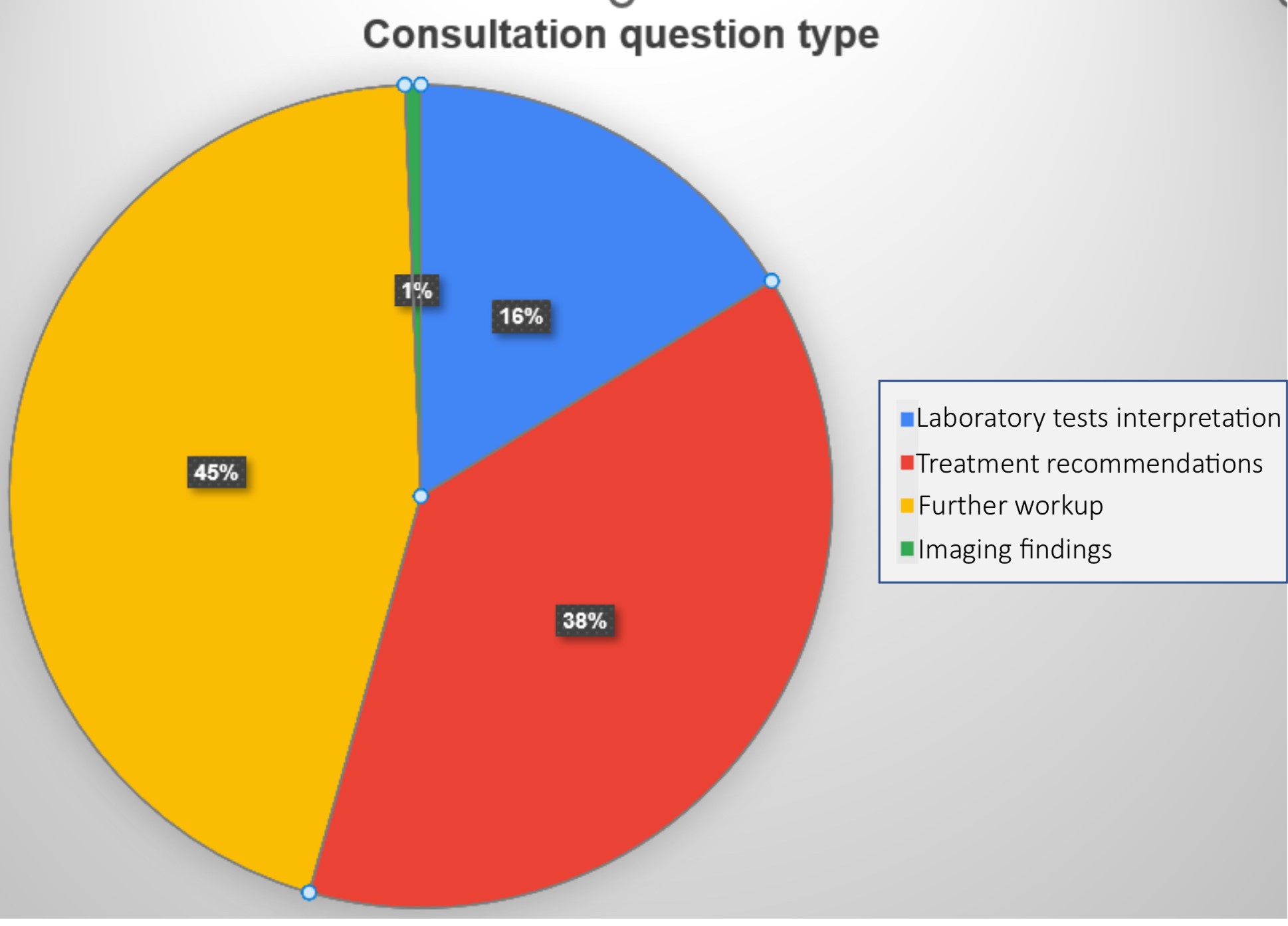Session Information
Session Type: Poster Session C
Session Time: 9:00AM-11:00AM
Background/Purpose: Despite rheumatology being a critical component of internal medicine (IM) residency training, internists are often inadequately trained to identify and manage rheumatologic disorders. In order to evaluate teaching gaps in the core inpatient curriculum, we surveyed inpatient rheumatology consults placed by IM residents over 6 months period. To help inform curriculum revisions, we compared the extracted data to the current curriculum objectives and identified areas of improvement for the inpatient setting.
Methods: Using Epic SlicerDicer we performed a qualitative analysis of inpatient consult encounters from June 2022-January 2023. Extracted data was exported into an excel sheet for analysis. Each consult question was attributed to one theme category: 1) laboratory test interpretation;2) imaging findings;3) workup for complex presentations; 4) management of rheumatic disease. Rheumatologic diagnosis was extracted in the sheet if mentioned in the consult question. Of note, some consult questions contained more than one diagnosis and theme.
Results: 160 consultations were assessed. The purpose of the consultations was recommendation regarding further workup in 72 (45%), treatment recommendation in 61 (38%), laboratory tests interpretation 26 (16%), imaging findings in one (1%). A broad range of rheumatic diseases was covered in the consult questions. Most common was arthralgia/ RA33%, gout 19%, SLE 15%, ILD 10%, vasculitis 5%, myopathy 5%, scleroderma 4%, GCA 4%, APLS 3%, rashes 2% and 1.6% for Sjogren’s syndrome, dermatomyositis, MCTD, SJS/TEN, IgG4-RD.The most concise questions were about gout or lupus flare. When our rheumatology curriculum was examined, we found that 40% of consultation topics were not included.
Conclusion: Our analysis of consult questions revealed gaps in internists’ training related to rheumatologic disorders. Most common consults were regarding gout and unspecified joint pain which can be commonly managed by the IM team. The variety of rheumatic diseases covered in the consult questions underscores the importance of comprehensive training in this field. By addressing these gaps and expanding the trainees’ knowledge base, we can improve the overall academic and clinical training in rheumatology for internal medicine residents.
To cite this abstract in AMA style:
Ferraz Neto J, Ismail D, Esagian S, Vukelic M. Enhancing Internal Medicine Curriculum: Key Rheumatology Themes in Inpatient Setting [abstract]. Arthritis Rheumatol. 2023; 75 (suppl 9). https://acrabstracts.org/abstract/enhancing-internal-medicine-curriculum-key-rheumatology-themes-in-inpatient-setting/. Accessed .« Back to ACR Convergence 2023
ACR Meeting Abstracts - https://acrabstracts.org/abstract/enhancing-internal-medicine-curriculum-key-rheumatology-themes-in-inpatient-setting/

